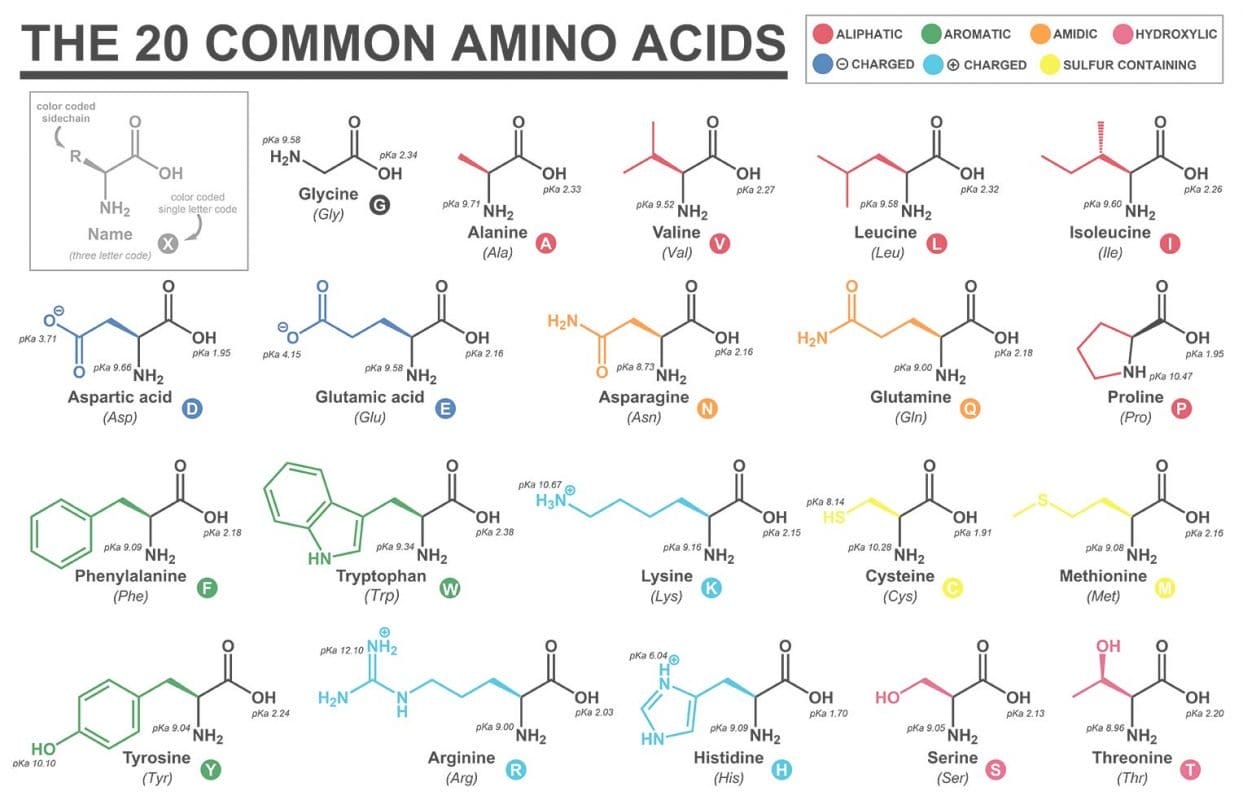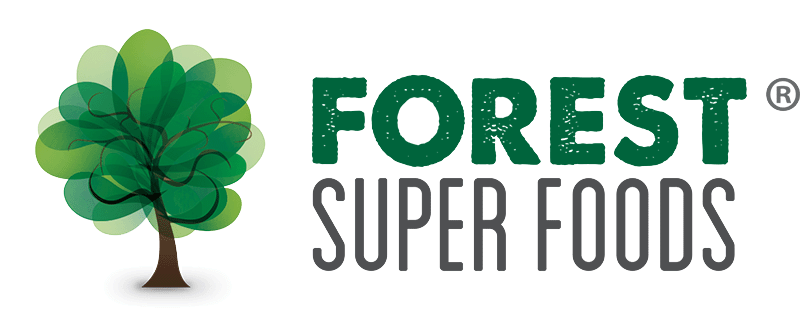What are amino acids?
Amino acids are often called the building blocks of protein and play a number of important functions for the body. Amino acids build proteins and synthesise hormones and neurotransmitters while also removing waste build-up related to metabolism.
Essential amino acids?
Of the 22 amino acids, nine are categorised as essential. The body cannot produce these on its own, they can only be obtained from food sources. Foods containing all nine Amino acids are referred to as complete proteins. Here are some foods that contain complete protein:
- Eggs
- Bee Pollen
- Chicken
- Fish
- Chia Seeds
- Hemp Seeds
- Soybeans
- Quinoa
What are the different amino acids and what function do they serve?
Histidine, isoleucine, leucine, lysine, methionine, phenylalanine, threonine, tryptophan and valine are the nine essential amino acids the body requires.
Histidine produces histamine which plays a starring role regulating immune response, appetite, learning, memory, the sleep-wake cycle and sexual behaviour.
Theonine supports central nervous, liver and immune function, regulates fat metabolism and makes up part of integral proteins like elastin and collagen.
Isoleucine regulates energy and is important for muscle metabolism. It helps the body recover from intense exercise and produces hemoglbin.
Trptophan produces melatonin, and has a major role to play regulating resting and sleeping whilst also producing serotonin, regulating mood, anxiety and stress levels.
Phenylalanine is crucial for the production of other amino acids and epinephrine and norephinephrine which are responsible for the body’s “fight or flight” responses to stress. It produces chemicals that are important for memory and learning but also for regulating reward-motivated behaviour, sending signals of pleasure to nerve cells.
Leucine is essential for the production of protins and muscle repair. It is important in the regulation of blood sugar levels, produces growth hormones and helps the body heal wounds.
Lysine is another amino acid essential in building proteins throughout the body. It plays an important factor in the production of energy, collagen and elastin and the absorption of calcium.
Isolecine assists wound healing, regulating immune function and helps the body secrete many hormones from the body. It also plays a role producing haemoglobin and regulating energy levels within the body.
Methionine is necessary for muscle tissue growth and helps the body regulate metabolism. Methionine is integral in the body’s absorption of zinc and selenium.
So while essential amino acids are mostly known for their role in the building and reparation of muscle tissue, they play so many more vital functions for the body, which is why a deficiency in essential amino acids can lead to immune, nervous, digestive and reproductive issues.

What are the benefits of consuming foods high in essential amino acids?
Making sure you eat plenty of foods with high amounts of essential amino acids can have many benefits to the mind and body including:
Exercise performance boosting:
Isoecine, Leucine & Valine contribute to muscle building, muscle repair and can reduce exercise fatigue, whilst helping the muscles recover and reduce soreness after strenuous exercise.
Better moods, better sleep:
Tryptophan produces serotonin, which regulates sleep, mood and behavioural patterns. Low levels of serotonin can cause anxiety, depression and insomnia, so boosting foods with this important essential amino acid is very important for increased happiness and sleep.
Increased mental focus:
A study released in the 2012 journal “Behavioural Brain Research” concluded that learning and motivation was severely impaired in animals that had a depleted store of Serotonin.
Conclusion
Essential amino acids are vital so many different functions of the body, it’s imperative to make sure you’re consuming the recommended intake, and boosting with foods with high concentrations of these amazing compounds.
https://forestsuperfoods.com.au/product/organic-hemp-seeds/
https://forestsuperfoods.com.au/product/organic-chia-seeds/
Western Australian Bee Pollen


